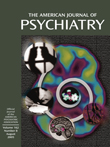Dr. Alexopoulos Replies
To the Editor: Dr. Mender’s letter offers additional support for my view that experimentally sound scientific findings have only relative value and underscores the importance of nonscientific processes. He points out that thinkers from two disparate traditions raise questions about the safety of experimentally supported conclusions.
Dr. Mender’s first point is that the experimental method cannot adequately confirm or reject scientific hypotheses. This view has been articulated in the “Duhem-Quine thesis” and is based on the assumption that hypotheses cannot be tested in isolation from the theoretical network in which they belong (1, 2). Scientists do not subject an isolated hypothesis to testing but only a whole group of hypotheses. Thus, testing a hypothesis depends on its background assumptions. When the background assumptions are challenged, the observations that initially were used to justify a hypothesis become irrelevant. However, when a predicted event fails to occur, it is evident that something in the hypothesis needs to be changed, but nothing in the experiment indicates what the change should be. Consequently, any hypothesis can be safeguarded from falsity, so long as scientists are prepared to make appropriate adjustments to other parts of the theoretical framework. Therefore, critical experiments alone may be inadequate to change the zeitgeist of science.
Dr. Mender’s second point emphasizes the power of culture in the scientific process. It is based on the existentialist view that embeddedness in a cultural context contributes to an inveterate tendency toward conventionalism and inauthenticity (3). Scientists are not immune to this problem. As they become initiated in the practices of the scientific community, they are inclined to drift along with the crowd, enacting stereotyped roles. The current competitive funding and publication system encourages conformity and compromises the scientists’ ability to seize on and define their own scientific lives. Thus, to be authentic is not an expected consequence of the scientific process and requires action.
Paraphrasing Socrates’s “εν οιδα οτι ουδεν οιδα,” one can argue that there is no safety in science or anything else. Nonetheless, despite its limitations, science has offered the soundest approach to understanding and treating psychopathology. Most of the recent treatment advances in psychiatry have been based on science. Thus, my argument is not one of scientific nihilism but one that emphasizes the need for awareness of the nonscientific forces influencing the scientific process, including the scientific culture and its extremes, the evolving means of experimentation, and the social factors that promote scientific productivity. Because scientific criteria alone cannot define scientific priorities, this responsibility falls on investigators and policy makers.
1. Duhem P: The Aim and Structure of Physical Theory. New York, Atheneum, 1962, pp 180–218Google Scholar
2. Quine WVO: Two dogmas of empiricism, in From a Logical Point of View. Boston, Harvard University Press, 1953, pp 20–46Google Scholar
3. Guignon CB (ed): Authenticity, moral values, and psychotherapy, in The Cambridge Companion to Heidegger. Cambridge, UK, Cambridge University Press, 1993, pp 215–239Google Scholar



